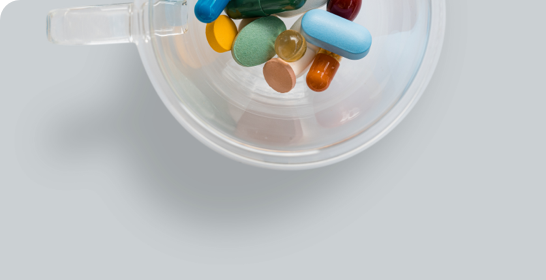We use cookies to make your experience better. To comply with the new e-Privacy directive, we need to ask for your consent to set the cookies. Learn more.
KSM66 Ashwagandha [Withania somnifera D.] root 5% Withanolides [HPLC] Powder extract
Synonym(s):
- KSM66-Ashwagandha; KSM66; Ashwagandha; Withania somnifera D.; Withanolides
- CAS Number: 90147-43-6
- EC Number: 290-434-9
KSM66 Ashwagandha [Withania somnifera D.] root 5% Withanolides [HPLC] Powder extract
Key Facts
Background
Ashwagandha (Withania somnifera), also known as Indian ginseng or winter cherry, is a herb that has a long history of use in Ayurvedic Medicine (traditional Indian medicine). While various parts of the plan can be used, KSM66 is an extract of the ashwagandha root, as this is the most beneficial part of the plant.Traditionally, ashwagandha has had various uses, but one of the most common was as a nervine tonic. Due to this, many studies have focused on its adaptogenic, anxiolytic and anti-stress activities. However, it has also been found to improve exercise performance, improve blood glucose levels, improve blood lipid profile, and decrease blood pressure. As well as this it has been shown to exert anticancer, neuroprotective and anti-inflammatory effects.
KSM-66 is an unadulterated form of ashwagandha and has negligible levels of Withaferin A. This is important as Withaferin A has been recognised as a cyto-toxic withanolide. Many manufacturers of ashwagandha use a combination of leaf and root extract, this is generally as the leaf is a much cheaper part of the plant. However, the primary use of leaves traditionally was for topical treatments on the skin for conditions like burns or carbuncles, not internal consumption which goes against established Ayurvedic practice. Ayurveda cautions that the leaf-extract is only for occasional external use. The use of the roots also have a much bigger foundation in terms of human clinical evidence. Only the root of ashwagandha and not the leaves are mentioned for therapeutic use and ingestion in the United States Pharmacopoeia, the British Pharmacopoeia, the Indian Pharmacopoeia, the Ayurvedic Pharmacopoeia, Indian Materia Medica, the Health Canada monograph and the W.H.O. monograph.
At Present we have the following variants of KSM-66
KSM-66 Ashwagandha - [Withania somnifera D.] root 5% Withanolides [HPLC] Powder extractKSM-66 Ashwagandha [Vegan-Organic] - [Withania somnifera D.] root 5% Withanolides [HPLC] Powder extract
KSM-66 Ashwagandha [Vegan] - [Withania somnifera D.] root 5% Withanolides [HPLC] Powder extract
KSM-66 Ashwagandha [Vegan-300 mesh] - [Withania somnifera D.] root 5% Withanolides [HPLC] Powder extract [Beverage Grade]
Chemistry
The major chemical constituents of Ashwagandha are withanolides. These are a group of naturally occurring C28-steroidal lactone triterpenoids built on an intact or rearranged ergostane framework, in which C-22 and C-26 are appropriately oxidized to form a six-membered lactone ring (Mirjalili et al., 2009). It is these withanolides that are thought to exert many of the health benefits of ashwagandha.Health Benefits
Stress & Anxiety
Ashwagandha is often marketed as an adaptogen. This is due to its history of use in Ayurvedic Medicine and the large body of research to support its use in this context. An adaptogen is defined as a natural substance that helps the body adapt to stress. This effect is thought to be due to the presence of withanolide glycosides.Evidence strongly supports the notion that ashwagandha exerts potent anxiolytic (anxiety reducing) effects in the context of chronic stress and anxiety disorder.
This decrease in stress is linked to a decrease in cortisol, which is sometimes known as the ‘stress hormone’. Stressful situations can cause an increase in serum cortisol levels. Studies have found that ashwagandha is capable of decreasing cortisol levels in people with chronic mental stress by almost 30% (Chandrasekhar et al., 2012). This decrease in cortisol also appears to be mirrored by an increase in testosterone in men which has many positive effects on health and wellbeing from mental health to physical health, to fertility (Mahdi et al., 2009). Increases of testosterone levels by up to 22% were observed.
Ashwagandha has not only proven to be effective in individuals with acute stress but also in those facing acute stress, again seen through a reduction in cortisol (Salve et al., 2019).
Brain Health
Due to the fact that withanolides have shown to induce antioxidant enzymes in the brain, ashwagandha has been found to exert neuroprotective effects. Studies have found that it potentially provides protection from a variety of cognitive diseases associated with oxidative stress such as memory loss (Chaurasia et al., 2000; Bhattacharya et al., 2001).As well as this, ashwagandha has shown the ability to induce neurogenesis and prevent certain neurotoxins from suppressing neurogenesis (Tohda et al., 2005). This is thought to play a role in the prevention of cognitive decline.
The numerous beneficial effects ashwagandha can have such as rescuing neuronal cells against toxic insults and inflammation by modulating PI3K/Akt, MAPK signalling pathways, antiapoptotic cascades means it can thereby protect neurons from degenerative conditions such as in diseases like Alzheimer’s, Parkinson’s and Huntington's disease (Dar & Ahmad, 2020).
Physical Performance & Health
Ashwagandha has been used in the past to increase vitality, energy, endurance and stamina. This has led to research delving into whether ashwagandha can enhance physical performance. One such study found that daily ashwagandha supplementation helped increase VO2 max in as little as 4 weeks, and by an even greater amount in 8 weeks, and enhanced cardiorespiratory endurance in already healthy adults (Choudhary et al., 2015). Importantly, the same study found that individuals taking ashwagandha reported that their quality of life improved, indicating that ashwagandha can improve an individual’s resistance towards stress (Choudhary et al., 2015).Ashwagandha has also shown to cause a decrease in inflammatory markers such as IL-6 and TNF-alpha, which could help aid the recovery from exercise (Wankhede et al., 2015).
Ashwagandha may also help individuals who have subclinical hypothyroidism, essentially an underactive thyroid which can be linked to weight gain, coronary heart disease and heart failure amongst other negative health effects. Ashwagandha supplementation can help increase T3 and T4 levels which are two key hormones in supporting healthy thyroid function (Sharma et al., 2017).
Ashwagandha supplementation has also proven effective at helping increase muscle strength and size to a greater extent than if not taken, when following a resistance training programme (Wankhede et al., 2015). It can also increase the rate of body fat reduction when taken alongside appropriate training and nutrition (Wankhede et al., 2015).
Blood Sugar Control
Numerous studies have demonstrated the beneficial effect ashwagandha has on blood sugar by lowering the levels. Importantly, this benefit appears to be seen in both healthy people and those with diabetes. This benefit is thought to be through an increase in insulin secretion and improved insulin sensitivity in muscle cells (Gorelick et al., 2015).Blood Lipid Profile
Ashwagandha has also demonstrated an ability to improve the blood lipid profile of individuals with dyslipidaemia. Dyslipidaemia is generally characterised as a decreased concentration of high-density lipoprotein cholesterol as well as qualitative changes in low density lipoprotein and raised triglycerides. It is a feature of the metabolic syndrome and recognised as a precursor to coronary heart disease. Therefore, improving these blood markers is hugely important for health.Multiple studies have shown that ashwagandha can reduce blood triglyceride levels (Andallu & Radhika, 2000), low density lipoprotein cholesterol (Raut et al., 2012) and an increase in high-density lipoprotein cholesterol (Auddy et al., 2008).
Men’s Health
Ashwagandha has traditional uses as an aphrodisiac to help male sexual dysfunction and infertility. This use has been supported by modern science, with studies demonstrating its abilities to increase testosterone levels, with levels increasing 17%, as well as potential to improve sperm quality as well (Ambiye et al., 2013; Wankhede et al., 2015). A study found that KSM-66 supplementation increased sperm count by 167%, increased semen volume by 53% and increased sperm motility by 57% (Ambiye et al., 2013).Women’s Health
As well as its use in men, ashwagandha has also been used to address sexual dysfunction, which has been identified in up to two thirds of women (Laumann et al., 1999). Research has investigated the use of ashwagandha, specifically KSM-66, in women with female sexual dysfunction (Allahdadi et al., 2009). Supplementation with ashwagandha increased sexual function, increased their arousal, lubrication and sexual satisfaction.Sleep
Sleep plays a massive role in both our physical and mental health, with inadequate sleep being closely correlated to depression and anxiety in certain individuals. Research has found that the supplementation of ashwagandha can improve sleep quality by decreasing the time it takes to fall asleep, improve sleep efficiency, improve sleep duration and decrease sleep disturbances (Langade et al., 2019).References
- Allahdadi, K., Tostes, R. and Webb, R., 2009. Female Sexual Dysfunction: Therapeutic Options and Experimental Challenges. Cardiovascular & Hematological Agents in Medicinal Chemistry, 7(4), pp.260-269.
- Ambiye, V., Langade, D., Dongre, S., Aptikar, P., Kulkarni, M. and Dongre, A., 2013. Clinical Evaluation of the Spermatogenic Activity of the Root Extract of Ashwagandha (Withania somnifera) in Oligospermic Males: A Pilot Study. Evidence-Based Complementary and Alternative Medicine, 2013, pp.1-6.
- Andallu, B. and Radhika, B., 2000. Hypoglycemic, diuretic and hypocholesterolemic effect of winter cherry (Withania somnifera, Dunal) root. Indian Journal of Experimental Biology, 38(6), pp.607-9.
- Auddy, B., Hazra, J., Mitra, A., Abedon, B. and Ghosal, S., 2008. A Standardized Withania Somnifera Extract Significantly Reduces Stress-Related Parameters in Chronically Stressed Humans: A Double-Blind, Randomized, Placebo-Controlled Study. Journal of the American Nutraceutical Association, 11(1), pp.51-7.
- Bhattacharya, A., Ghosal, S. and Bhattacharya, S., 2001. Anti-oxidant effect of Withania somnifera glycowithanolides in chronic footshock stress-induced perturbations of oxidative free radical scavenging enzymes and lipid peroxidation in rat frontal cortex and striatum. Journal of Ethnopharmacology, 74(1), pp.1-6.
- Chandrasekhar, K., Kapoor, J. and Anishetty, S., 2012. A Prospective, Randomized Double-Blind, Placebo-Controlled Study of Safety and Efficacy of a High-Concentration Full-Spectrum Extract of Ashwagandha Root in Reducing Stress and Anxiety in Adults. Indian Journal of Psychological Medicine, 34(3), pp.255-262.
- Chaurasia, S., Panda, S. and Kar, A., 2000. Withania somnifera root extract in the regulation of lead-induced oxidative damage in male mouse. Pharmacological Research, 41(6), pp.663-666.
- Choudhary, B., Shetty, A. and Langade, D., 2015. Efficacy of Ashwagandha (Withania somnifera [L.] Dunal) in improving cardiorespiratory endurance in healthy athletic adults. AYU (An International Quarterly Journal of Research in Ayurveda), 36(1), p.63.
- Dar, N. and Ahmad, M., 2020. Neurodegenerative diseases and Withania somnifera (L.): An update. Journal of Ethnopharmacology, 256, p.112769.
- Gorelick, J., Rosenberg, R., Smotrich, A., Hanuš, L. and Bernstein, N., 2015. Hypoglycemic activity of withanolides and elicitated Withania somnifera. Phytochemistry, 116, pp.283-289.
- Langade, D., Kanchi, S., Salve, J., Debnath, K. and Ambegaokar, D., 2019. Efficacy and Safety of Ashwagandha (Withania somnifera) Root Extract in Insomnia and Anxiety: A Double-blind, Randomized, Placebo-controlled Study. Cureus,.
- Laumann, E., Paik, A. and Rosen, R., 1999. Sexual Dysfunction in the United States. JAMA, 281(6), p.537.
- Mahdi, A., Shukla, K., Ahmad, M., Rajender, S., Shankhwar, S., Singh, V. and Dalela, D., 2011. Withania somniferaImproves Semen Quality in Stress-Related Male Fertility. Evidence-Based Complementary and Alternative Medicine, 2011, pp.1-9.
- Mirjalili, M., Moyano, E., Bonfill, M., Cusido, R. and Palazón, J., 2009. Steroidal Lactones from Withania somnifera, an Ancient Plant for Novel Medicine. Molecules, 14(7), pp.2373-2393.
- Raut, A., Rege, N., Shirolkar, S., Pandey, S., Tadvi, F., Solanki, P., Vaidya, R., Vaidya, A. and Kene, K., 2012. Exploratory study to evaluate tolerability, safety, and activity of Ashwagandha (Withania somnifera) in healthy volunteers. Journal of Ayurveda and Integrative Medicine, 3(3), p.111.
- Salve, J., Pate, S., Debnath, K. and Langade, D., 2019. Adaptogenic and Anxiolytic Effects of Ashwagandha Root Extract in Healthy Adults: A Double-blind, Randomized, Placebo-controlled Clinical Study. Cureus,.
- Sharma, A., Basu, I. and Singh, S., 2018. Efficacy and Safety of Ashwagandha Root Extract in Subclinical Hypothyroid Patients: A Double-Blind, Randomized Placebo-Controlled Trial. The Journal of Alternative and Complementary Medicine, 24(3), pp.243-248.
- Tohda, C., Kuboyama, T. and Komatsu, K., 2005. Search for Natural Products Related to Regeneration of the Neuronal Network. Neurosignals, 14(1-2), pp.34-45.
- Wankhede, S., Langade, D., Joshi, K., Sinha, S. and Bhattacharyya, S., 2015. Examining the effect of Withania somnifera supplementation on muscle strength and recovery: a randomized controlled trial. Journal of the International Society of Sports Nutrition, 12(1).
Explore your sector
Vita Actives manufacture, source, stock and distribute the highest quality bulk ingredients for pharmaceutical, nutraceutical, cosmeceutical and veterinary finished product manufacturers. We also supply tailor-made raw materials and finished nutritional supplements.




